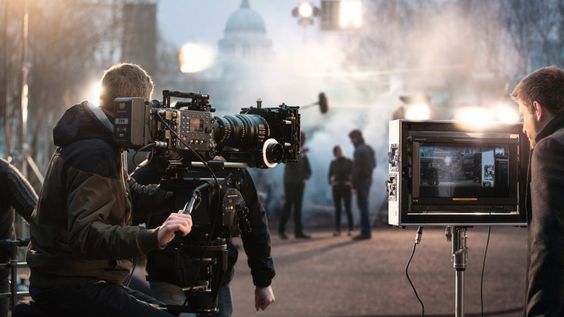How to Audition for a Movie
Auditioning for a movie can be an exhilarating yet nerve-wracking experience. Whether you’re a seasoned actor or a novice looking to break into the industry, understanding the process and preparing effectively can significantly increase your chances of success. This comprehensive guide will walk you through every step of the audition process, from finding opportunities to nailing your performance in front of the casting directors.
Understanding the Industry
The Role of Casting Directors
Casting directors are the gatekeepers of the audition process. They are responsible for finding the right talent to fit the roles in a movie. Understanding their role and what they are looking for can help you tailor your approach and make a lasting impression. Read about How to Audition for Stranger Things Season 5
Types of Auditions
There are various types of auditions you may encounter, including:
- Open Auditions: Open to anyone who wants to try out.
- Closed Auditions: Invitation-only, typically for union actors or those with agents.
- Callbacks: Follow-up auditions for actors who have made a strong impression.
- Screen Tests: Filmed auditions to see how actors look and perform on camera. Discover about How to Audition for Netflix
Finding Audition Opportunities
Online Casting Websites
There are numerous online platforms where casting calls are posted. Some popular ones include:
- Backstage: A comprehensive resource for actors, offering casting calls, industry news, and career advice.
- Casting Networks: A global casting platform connecting talent with casting directors.
- Actors Access: A service provided by Breakdown Services, offering casting notices and audition materials.
Agents and Managers
Having a reputable agent or manager can open doors to exclusive audition opportunities. They have industry connections and can submit you for roles that aren’t publicly advertised.
Networking
Building relationships within the industry is crucial. Attend industry events, workshops, and networking functions to meet casting directors, producers, and other actors.
Preparing for the Audition
Research the Project
Understanding the project you’re auditioning for is essential. Research the film, the director, the genre, and the character you’re auditioning for. This knowledge will inform your performance and show the casting directors that you are serious about the role.
Learn Your Lines
Being well-prepared with your lines is crucial. Learn your lines so well that you can deliver them naturally and without hesitation. This allows you to focus on your performance and connect with the character.
Character Analysis
Dive deep into your character. Understand their motivations, background, and relationships. This depth of understanding will bring authenticity to your performance.
Physical and Vocal Warm-ups
Warming up your body and voice before an audition can help you perform at your best. Practice physical exercises and vocal drills to ensure you are ready to deliver your lines with clarity and confidence.
The Audition Process
Arrival and Check-In
Arrive early to your audition to allow time for check-in and to get settled. Being punctual shows professionalism and respect for the casting team’s time.
The Audition Room
When you enter the audition room, greet the casting directors and other individuals present. Be polite, confident, and professional. First impressions matter.
Performing Your Audition
- Slate: Introduce yourself and the role you are auditioning for.
- Deliver Your Lines: Perform your prepared scene or monologue. Stay in character and give your best performance.
- Take Direction: Be open to feedback and direction from the casting team. They may ask you to perform the scene differently to see your range and adaptability.
Handling Nerves
It’s natural to feel nervous during an audition. Focus on your preparation, take deep breaths, and remind yourself that the casting directors want you to succeed. Channel your nerves into energy for your performance.
Post-Audition
Follow-Up
After your audition, it’s a good idea to send a thank-you note to the casting director. This shows appreciation for the opportunity and keeps you fresh in their minds.
Handling Rejection
Rejection is a common part of the audition process. Don’t take it personally. Use each audition as a learning experience and keep improving your craft.
Building Your Career
Continuing Education
Always strive to improve your skills. Take acting classes, workshops, and training sessions to hone your craft and stay competitive in the industry.
Building a Strong Portfolio
Create a professional portfolio that includes a headshot, resume, and demo reel. These materials are essential for showcasing your talent and experience to casting directors and agents.
Conclusion
Auditioning for a movie is a challenging yet rewarding journey. By understanding the industry, preparing thoroughly, and staying resilient, you can increase your chances of landing that coveted role. Remember, every audition is an opportunity to learn and grow as an actor. Keep honing your craft, stay positive, and never give up on your dreams.
FAQs
1. What should I wear to an audition?
Dress appropriately for the character you are auditioning for. If no specific instructions are given, choose something professional and comfortable that allows you to move freely.
2. How can I find auditions without an agent?
Use online casting websites, social media, and networking to find audition opportunities. Attend open casting calls and industry events to connect with professionals.
3. What should I include in my acting resume?
Your acting resume should include your contact information, headshot, acting experience, training, special skills, and any relevant credits. Keep it concise and professional.
4. How do I handle rejection?
Rejection is a natural part of the audition process. Stay positive, learn from each experience, and keep working on your craft. Remember that even successful actors face rejection.
5. Should I move to a major city to pursue acting?
While living in a major city like Los Angeles or New York can offer more opportunities, it’s not mandatory. Many successful actors start their careers in smaller markets and gradually transition to larger cities as they gain experience.

Michael Johnson, an accomplished writer whose articles are a testament to his curiosity and depth of insight. Michael’s writing navigates a wide spectrum of topics with ease, from science and technology advancements to arts, politics, and societal trends. With a blend of thorough research and engaging storytelling, Michael crafts articles that not only inform but also spark meaningful discussions. His ability to distill complex information into accessible narratives makes his work both informative and enjoyable to read. Whether unraveling the mysteries of the cosmos or exploring the intricacies of human behavior, Michael’s articles offer readers a journey of discovery and intellectual enrichment.

